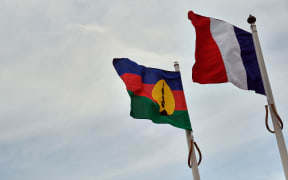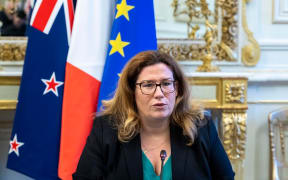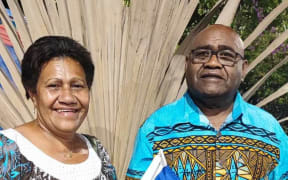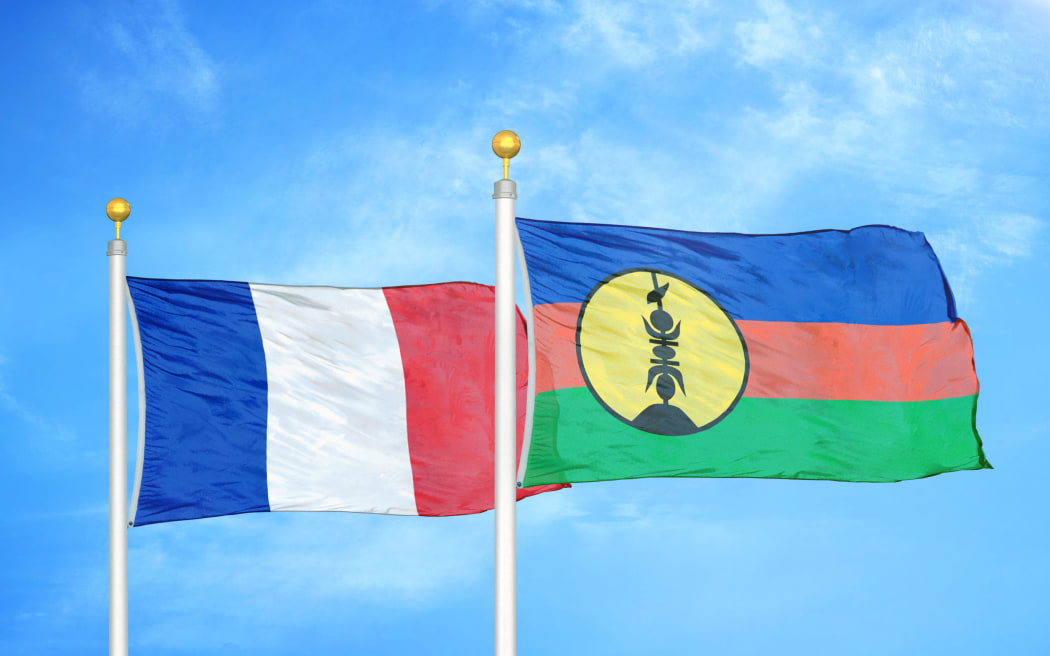
Photo: 123rf
New Caledonia's political parties, both pro-French and pro-independence, have started to prepare for the visit of French Minister Gérald Darmanin later this month and, for the first time, have initiated a first in many years: a confrontation of opposing views on the French Pacific territory's political future.
The first working session took place on Wednesday between leaders of pro-France Calédonie Ensemble (CE) and the first pro-independence group to respond to the invitation, UC-FLNKS and Nationalists.
The invitation from CE (Calédonie Ensemble) was extended on 24 October to the Presidents of all political groups represented at New Caledonia's Congress, stressing that this proposed dialogue "is not meant to replace the dialogue with the (French) State".
First to respond, UC-FLNKS and Nationalists (pro-independence) leader Pierre-Chanel Tutugoro said on Wednesday the initiative "would be an important step to move towards a better future for New Caledonia".
Calédonie Ensemble is regarded as a moderate pro-French party in New Caledonia's political spectrum.
Its leader Philippe Gomès told media his party's initiative aimed at getting all local parties to finally speak directly to each other and not, as has been the practice over the past 25 years, to resort to France or the media to act as mediators and go-betweens.
Gomès said there was sufficient time to prepare for French Home Affairs and Overseas Minister Gérald Darmanin's visit (announced to take place on 24-25 November).
At the end of the series of roundtables held in Paris in September, Darmanin submitted what he himself terms a "martyr" draft which envisaged several aspects of New Caledonia's political future post-Nouméa Accord, the autonomy agreement that has governed local political and institutional life for the past 25 years but is now reaching the end of its lifespan.
On Wednesday, AE leaders Philippe Dunoyer, Philippe Gomès and Philippe Michel met for the whole day with UC-FLNKS and Nationalists head Pierre-Chanel Tutugoro.
They then issued a joint statement at the end of what they called their "working and exchange" day.
"Now the time has come for us to speak between (New) Caledonians. It is time for us to confront our visions about the future of our country otherwise than by proxy, via the (French) State or the media. It is time for us to build, between ourselves, the necessary convergences that will allow us to elevate ourselves to exit the Nouméa Accord", the joint document said.
Some of the topics discussed were the pursuit of the ongoing emancipation process for New Caledonia, under the successive Matignon and Nouméa autonomy Accords (1988 and 1998) and the notions of common memory, common destiny, New Caledonian people, shared values and an envisaged New Caledonian citizenship, as well as the right to self-determination.
"If on some topics, differences do exist between us, it is equally important to stress that there are numerous points of convergence", the joint AE / UC-FLNKS release stated.
Gomès said during Wednesday's talks with UC-FLNKS, nobody denied their differences (…) But we took the time for exchange, confrontation of ideas, to listen to one another in the respect of each other's beliefs ».
Further sessions between AE and UC-FLNKS and Nationalists are said to be on the agenda.
Gomès said the door remained open to similar talks with other parties, including pro-independence ones, about New Caledonia's political and institutional future.
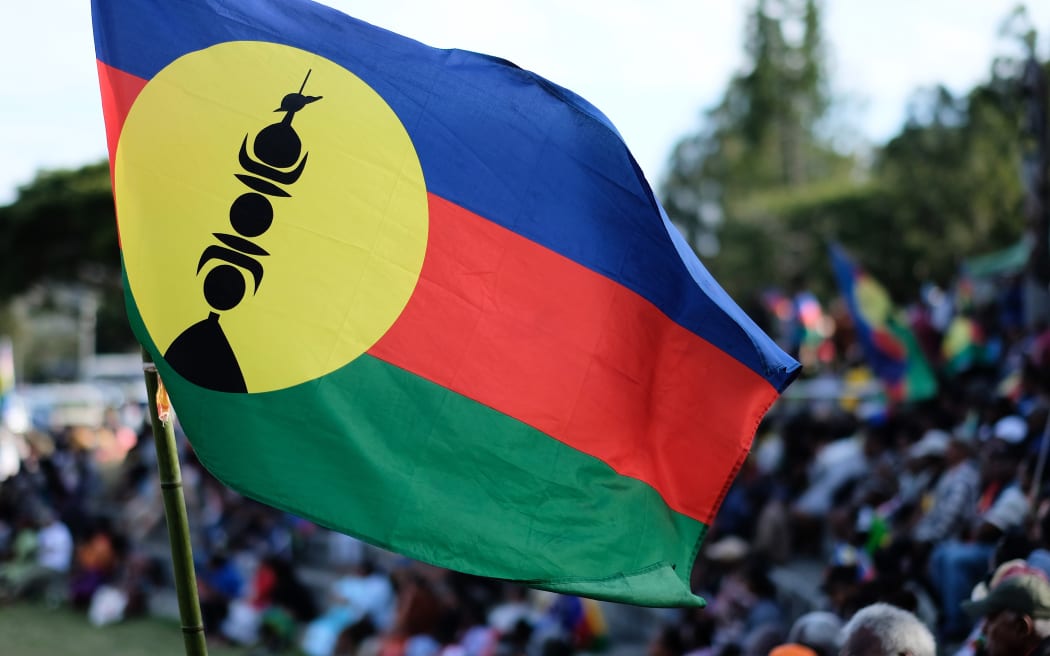
Photo: AFP
Two pro-French parties display a common front
Still in preparation of Darmanin's visit, the two parties regarded as closest to France, the Loyalistes and the Rassemblement, have also initiated joint moves and published this week another set of proposals in reaction to the French minister's "martyr" document.
In a joint press conference, the two groups have displayed a common front.
Their common stance notably proposes a 5-year minimum duration of residence in New Caledonia to become eligible to a still-in-the-making New Caledonian citizenship.
In other scenarios, such as marriage, the minimum length of residence would not apply, the pro-French parties said.
Some components of the pro-independence camp, fearing a future influx of foreign citizens, have earlier demanded that the minimum length of uninterrupted residence should not be less than 10 years.
The two groups also suggest a "period of stability" that would not allow any more referendums on self-determination for the next fifty years.
New Caledonia has held three successive referendums on self-determination between 2018 and 2021, as prescribed by the Nouméa Accord.
All three consultations have yielded a 'NO' to New Caledonia's independence, but the validity of the third one, held in December 2021, is contested by the pro-independence camp.
"We no longer want a referendum every two years. We want 50 years (of pause), this would provide two generations of tranquillity", Loyalistes spokesman Gil Brial told local media.
"And after 50 years, people can decide if they want a change. But this will have to be validated by a majority of 4/5ths in the Congress (the local Parliament) and 70 percent of the population", he added.
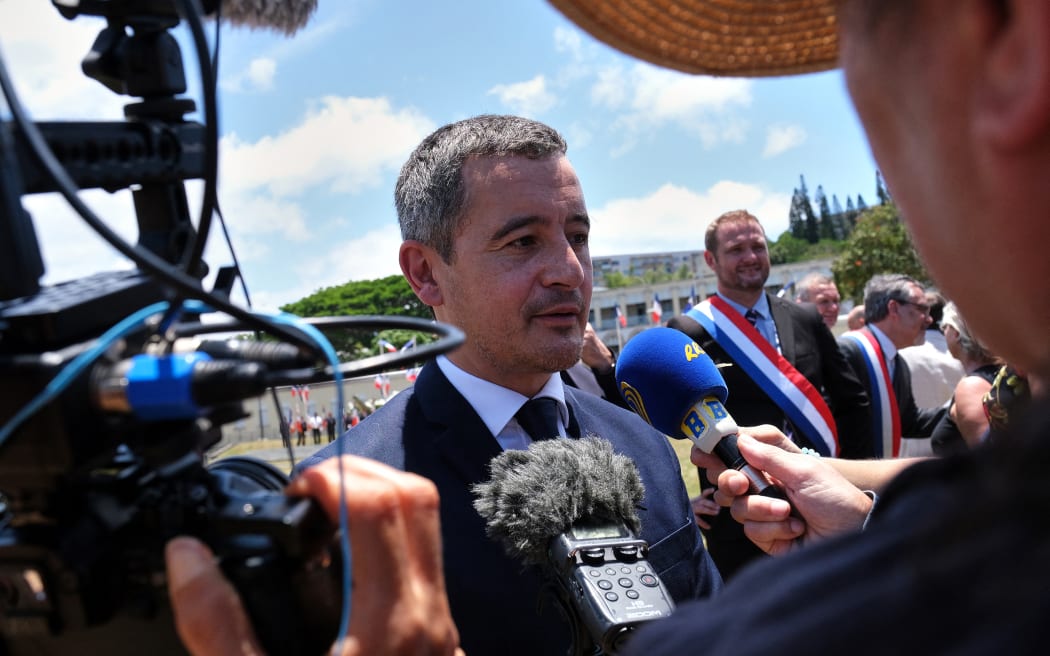
French minister Gérald Darmanin later this month. Photo: Clotilde Richalet / Hans Lucas / Hans Lucas via AFP
Darmanin's controversial "martyr" draft
Darmanin's "martyr" draft was said to be a working document ahead of a French Constitutional amendment which French President Macron wants to put to the vote of the French Congress early 2024.
Some of the most contentious issues were touching on modifying New Caledonia's electoral roll (which has been left unmodified and restricted to residents born there or residing not later than 1998 since the last Nouméa Accord signed in 1998).
Another controversial topic was perspectives of new referendums which would not be subject to a particular time frame, as New Caledonia has just held three self-determination consultations over the past five years, as prescribed by the Nouméa Accord.
The notion of a New Caledonian citizenship which could be, under proposed Constitutional amendments, made compatible with the French citizenship, was also another touchy issue.
After the September Paris talks, some components of the pro-independence umbrella FLNKS (such as the PALIKA - Kanak Liberation Party-) indicated they wished to come back to the table with Darmanin in Nouméa to pursue talks.
But other components of the FLNKS, like the more radical Union Calédonienne (UC), said Darmanin's working document was "unacceptable" and indicated they would not join any talks until they hold their annual congress from November 9 to 12.
Darmanin's new schedule for his visit would apparently allow the UC meeting to take place before he arrives.
The addition of finance minister Le Maire to the ministerial delegation comes in response to recent alarming reports on New Caledonia's nickel industry and reports that Swiss-based mining company Glencore, the major financier of one of New Caledonia's three mining company, Koniambo, in the Northern province, threatened to withdraw funding by the end of February 2024 unless a "new financial solution" is found.
This comes after the French government's finance ministry released early August an alarming report of New Caledonia's nickel industry, stressing the need for a major reform.
Late October, a group of pro-independence political parties (Union Calédonienne, Rassemblement Démocratique Océanien, Labour party) and two trade unions has released what they term an "international alert letter" calling on the international community to support their efforts "to put an end to the recolonisation of Kanaky-New Caledonia" by France.
It outlines concerns in three key areas, the disputed third independence referendum which was boycotted by pro-independence indigenous voters, a proposal to open up restricted electoral rolls in the territory and the announcement of an increased military presence in New Caledonia.
